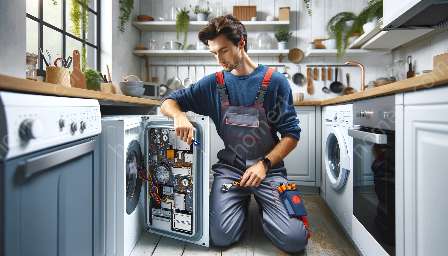When it comes to appliance safety regulations, understanding the compliance standards is crucial. This comprehensive guide delves into the importance of appliance safety regulations and their significance in appliance repair and domestic services.
The Basics of Appliance Safety Regulations
Appliances play a significant role in modern homes, offering convenience and efficiency. However, ensuring their safety is paramount. Appliance safety regulations are designed to protect consumers from potential hazards posed by malfunctioning or poorly maintained appliances.
These regulations encompass a wide range of safety standards, including electrical safety, fire safety, and chemical safety. Compliance with these regulations is not only a legal requirement but also vital for safeguarding the well-being of households.
Impact on Appliance Repair
For professionals in the appliance repair industry, knowledge of safety regulations is essential. This understanding allows repair technicians to identify potential hazards during repairs and ensure that the appliances they service comply with relevant safety standards.
Adhering to safety regulations also helps appliance repair businesses build trust with customers, as it demonstrates a commitment to providing safe and reliable repair services. By staying up-to-date with evolving safety standards, repair technicians can deliver high-quality, compliant repairs that prioritize the safety of the end users.
Integration with Domestic Services
Domestic service providers, such as home maintenance companies, also play a crucial role in upholding appliance safety regulations. From routine maintenance to installation and upgrades, these professionals must be well-versed in safety guidelines to ensure that the appliances they handle meet the necessary safety requirements.
By integrating compliance with appliance safety regulations into their service offerings, domestic service providers can offer peace of mind to homeowners, assuring them that their appliances are being maintained and serviced with the highest safety standards in mind.
Best Practices for Compliance
Staying compliant with appliance safety regulations involves ongoing education and adherence to best practices. This includes regular training for technicians, thorough inspections of appliances for potential safety hazards, and staying informed about any updates or changes to safety standards.
Furthermore, appliance repair and domestic service businesses should prioritize transparency with customers regarding the safety measures undertaken during servicing. By communicating their commitment to safety, these businesses can foster trust and loyalty among their clientele.
Conclusion
Appliance safety regulations form the foundation of safe and reliable appliance use, repair, and maintenance. By understanding and adhering to these regulations, appliance repair and domestic service providers can contribute to creating safer living environments for their customers. Embracing compliance with safety standards not only enhances consumer confidence but also promotes the well-being of households in the long run.



















